- Home
- Susan Hill
The Soul of Discretion
The Soul of Discretion Read online
BY THE SAME AUTHOR
The Simon Serrailler Crime Novels
THE VARIOUS HAUNTS OF MEN
THE PURE IN HEART
THE RISK OF DARKNESS
THE VOWS OF SILENCE
THE SHADOWS IN THE STREET
THE BETRAYAL OF TRUST
A QUESTION OF IDENTITY
Fiction
GENTLEMAN AND LADIES
A CHANGE FOR THE BETTER
I’M THE KING OF THE CASTLE
THE ALBATROSS AND OTHER STORIES
STRANGE MEETING
THE BIRD OF NIGHT
A BIT OF SINGING AND DANCING
IN THE SPRINGTIME OF THE
YEAR THE WOMAN IN BLACK
MRS DE WINTER
THE MIST IN THE MIRROR
AIR AND ANGELS
THE SERVICE OF CLOUDS
THE BOY WHO TAUGHT THE BEEKEEPER TO READ
THE MAN IN THE PICTURE
THE BEACON
THE SMALL HAND
A KIND MAN
BLACK SHEEP
Non-Fiction
THE MAGIC APPLE TREE
FAMILY
HOWARDS END IS ON THE LANDING
For Children
THE BATTLE FOR GULLYWITH
THE GLASS ANGELS
CAN IT BE TRUE?
Copyright
This edition first published in hardcover in the United States in 2015 by
The Overlook Press, Peter Mayer Publishers, Inc.
141 Wooster Street
New York, NY 10012
www.overlookpress.com
For bulk and special sales, please contact [email protected],
or write us at the above address
Copyright © 2014 by Susan Hill
All Rights Reserved. No part of this publication may be reproduced or transmitted in any form or by any means, electronic or mechanical, including photocopy, recording, or any information storage and retrieval system now known or to be invented without permission in writing from the publisher, except by a reviewer who wishes to quote brief passages in connection with a review written for inclusion in a magazine, newspaper, or broadcast.
ISBN 978-1-4683-1150-1
Contents
By The Same Author
Copyright
Dedication
Part One
One
Two
Three
Four
Five
Part Two
Six
Seven
Eight
Nine
Ten
Eleven
Twelve
Thirteen
Fourteen
Fifteen
Sixteen
Seventeen
Eighteen
Nineteen
Twenty
Twenty-one
Twenty-two
Twenty-three
Twenty-four
Twenty-five
Twenty-six
Twenty-seven
Twenty-eight
Twenty-nine
Thirty
Thirty-one
Thirty-two
Thirty-three
Thirty-four
Thirty-five
Thirty-six
Thirty-seven
Part Three
Thirty-eight
Thirty-nine
Forty
Forty-one
Forty-two
Forty-three
Forty-four
Forty-five
Forty-six
Forty-seven
Forty-eight
Forty-nine
Fifty
Fifty-one
Fifty-two
Fifty-three
Fifty-four
Fifty-five
Fifty-six
Fifty-seven
Fifty-eight
Fifty-nine
Part Four
Sixty
Sixty-one
Sixty-two
Sixty-three
Sixty-four
Sixty-five
Sixty-six
Map
About the Author
To my friend Mrs Green
(Candida Lycett Green 1942–2014)
This novel is a work of fiction. Names and characters are the product of the author’s imagination and any resemblance to actual persons, living or dead, is entirely coincidental.
PART ONE
One
APRIL 2007
Lafferton, and a night in early spring. After a week of frosts, the wind had swung to the west, bringing milder air. Snowdrops and crocuses were over, daffodils were flowering. Quiet, empty streets. No footsteps.
Jeff Barclay and Robbie Freeman sat on a low wall near the bus stop in the square, finishing off a shared kebab. They only had enough money for one, and a tea. Robbie screwed up the greasy paper and lifted his arm to throw it into a nearby bin. But his arm froze in mid-air.
‘What?’
‘Bloody hell.’
‘What?’ Jeff shoved him so that he almost fell off the wall. Robbie did not protest or shove back, he just stared at the entrance to the Lanes, the cobbled pedestrian-only street to their left.
‘Shit, did you see that?’
‘Didn’t see anything. What was it – a ghost?’ Jeff snorted.
‘No.’ Robbie said quietly, getting off the wall and walking towards the Lanes. ‘I saw a kid.’
‘What sort of kid?’
‘A little kid. It … it had no clothes on.’
‘You’re taking the piss. I never saw any naked kid.’
Jeff levelled with him as they reached the top of the Lanes. There were old-fashioned lamps at either end and a couple of shops had lighted front windows. The whole street was empty.
‘Stupid.’
‘No. I saw it. There was a little kid, it sort of – just ran and then it vanished.’
‘Yeah, right. Come on, let’s see if there’s anyone outside the Magpie.’
But Robbie was walking slowly away from him, looking closely to right and left. In the end, Jeff followed.
‘How could there be a kid?’
‘I know what I saw.’
‘What are you on, Rob? You start seeing things, you got a problem.’
There was a passageway between the deli and a smart clothes shop, and as Robbie looked into it, he saw a quick movement – something pale. He ran down, but he had to push past two wheelie bins, and by the time he had got through, if there had been anyone, they’d gone.
‘Cat.’
‘No.’
‘You’re mad.’
‘No.’
‘Oh, for fuck’s sake! I’m off home.’
It was another five minutes before Robbie followed him. They walked slowly along the kerb, thumbs out every time a vehicle went by. Not many did.
‘Wanker.’ Jeff gave two fingers to a speeding car. Robbie said nothing. His head was full of what he knew he had seen – not imagined, not hallucinated, seen. A child, maybe three or four years old, naked, slithering out of sight into the shadows, dodging down the alley and passageway. He couldn’t get it out of his mind.
A patrol car took the call at twenty to three.
PC Bev Willet sighed. ‘Wind-up,’ she said.
‘Sounds like it. But just in case – hold onto your hat.’
It had been a quiet night. Even a wind-up was better than trying to keep awake with more plastic coffee. The car raced up the bypass.
‘How old did he say?’
‘Little kid, three or so. Couldn’t say if it was a boy or girl.’
‘And naked?’
‘Naked.’
‘They piss me off, these hoaxers. I’d have them dunked in the canal on a freezing night.�
� Bev snorted as she pulled up at the entrance to the Lanes. One taxi was in the rank, the driver asleep with a copy of the Sun over his face. He didn’t stir at the sound of the patrol car.
‘Talk to him in a mo. Come on.’
Ten minutes later they had scoured the area, including every alley and passageway, every wheelie bin and recycling area.
‘Diddly squat,’ Bev said.
‘Pisses me off, this sort of thing.’
‘You said.’
‘Only why would he invent a naked child, for heaven’s sake?’
‘Guaranteed to make us move fast.’
‘Right. Just someone’s idea of a good laugh then. Better go and wake up our cabby.’
But their cabby had been out on jobs all evening and then fallen asleep. He was going home now. He’d keep an eye out.
‘His face said it all.’
‘Wind-up.’
‘Wind-up.’
Jess Honeywell’s baby woke for a feed at four. She picked him up out of his crib and moved the curtain aside briefly to look out at the night. Starry, with a big moon. A front-bedroom light was on a few doors down. Another wakeful baby. She and Katie Green sometimes chanced to look out at the same time and then they’d wave, sharing the small hours of new babies. They had propped one another up through pregnancy and the first weeks and went on doing so now, meeting almost every day, walking their buggies together, swapping notes. It had made all the difference. St Luke’s Road was in the grid of small Victorian terraced houses known as the Apostles, friendly, neighbourly, and near to the shops, coffee bars and restaurants of Lafferton’s centre. They were lucky, Jess thought as she dropped the curtain, even if the houses were small. She hated the idea of being stuck out in the sticks, even with bigger rooms and a garden, but no life nearby and needing a car to get you anywhere. They couldn’t afford a car. Matt walked to work.
The Green bedroom was in darkness, the moon shining on quiet pavements, but as she turned, Jess thought she saw something move. Turned back and lifted the curtain again. No. Trick of the light. Nothing. And then her hand went to her mouth. Noah was grizzling himself back to sleep but she barely noticed.
Matt was hard to wake and when he did, he stumbled out of bed assuming he had to pick up the baby and was almost able to do so in his sleep.
He came awake fully as Jess shook his arm.
‘What? You’ve been dreaming –’
‘NO. Matt, go down, go out there … I was not dreaming. You’ve got to go.’ Noah cried again as her voice rose. She picked him up and sat on the edge of the bed, putting him to the breast and gesturing to Matt to hurry.
It was not that he refused to believe her, just that he was still not fully awake, and he felt foolish, standing half dressed and in slippers, looking up and down St Luke’s Road and seeing nothing, Nothing at all. But she had been wide awake and he knew that she thought she had seen …
And then he saw.
The child was squatting down behind the gate of a house opposite.
‘It’s OK,’ Matt said. ‘It’s all right, it’s all right.’
He went through the gate and stopped. Later, he said that he would never forget the child’s face until his dying day. Later, he could not sleep because the face was in front of him. Later, he was haunted during his waking hours by sudden flashbacks to the child’s face as it looked up at him.
‘It’s all right. Dear God. Listen, I won’t hurt you. I’m going to look after you, OK?’ But even as he spoke, gently, quietly, the child tried to shrink into a hedge, as if it might find a safe place among the rough bare twigs and earth.
Very slowly, Matt inched his way, his hand out, talking softly in what he desperately hoped was a voice of reassurance. The child continued to shrink from him and now it turned its face away from him out of fear.
It was a girl. She was perhaps four years old. She was filthy, she had smears of blood on her arms and legs. Her long, fine, fair hair was matted to her scalp. She was completely naked.
There was silence and stillness and fear for long minutes before the child lurched forward, the hedge catching at her again as she moved and drawing fresh pinpoints of blood, and then she was clinging to Matt, climbing up him like a terrified small animal and pressing her little body to him. He put his arm round her carefully and edged backwards down the path. She did not move, only clung fast to him. Matt hurried across the road, back into the house, calling to Jess. But she had already seen him through the window and only seconds later, blue lights turning, the police car stopped outside.
Two
MAY 2007
Year 2 at St Luke’s Primary School had been talking about Things I Like and Things I Don’t Like, as part of the week’s topic on food and drink. Sue Norwood had found it informative. Most of the likes were as expected – sweet things, crisps, sometimes the odd grape – and the dislikes she could have predicted – milk, green vegetables, stew, runny egg. The next part of the topic would be more challenging – why we should try the things we don’t like again, in case we find we do like them after all. Why we shouldn’t eat too many sweets, even if we like them very much. Why our bodies need a variety of foods, including green vegetables … they would dutifully chant the ‘dislikes’ list and promise to try them again, go home and forget all about it. They would still come to school each morning carrying a half-empty pack of sticky sweets and an egg would never pass their lips. Some of them had even picked up on the words ‘wheat’ and ‘dairy’ in the same breath as the words ‘allergy’ and ‘intolerance’.
But they were still one of the best classes she had ever taught, alert, funny, loyal to one another and relatively well behaved. One or two had problems, including the boy who still wore nappies and the girl who never spoke, problems which were not easy to solve, and ought to involve the parents.
Sue sighed. She knew that the parents of the boy who still wore nappies would never come through the school gates, let alone come to see her.
The silent child was sitting at the far end of the second table now, head bent to the paper so that her face was barely visible. Glory Dorfner. There were some colourful names in Years 1 and 2 but what parent called their child ‘Glory’? And why not? she asked herself smartly. Better than … well, better than quite a few.
The classroom was quiet, apart from the odd sniff, cough and shuffle. They were drawing and labelling with some glee six things they disliked to eat or drink. She stood behind Alfie Starman. His ears needed a wash, but his careful picture of a cabbage was very good indeed and she said so. Alfie glanced round, flushed with pride and pleasure. Rikki O’Mara kicked him in the shin. But, as Rikki would have said, if challenged, ‘in a good way, Mrs Norwood’. She had a soft spot for Rikki.
Glory bent her head even further and her arm was curved across the paper to hide it. Sue waited a moment. She could feel the child’s tension.
‘May I see?’
Glory shook her head slightly.
‘Shall I guess?’
The child was absolutely still.
‘You don’t like – chips?’ Shouts from all sides, arms waving. Everyone liked chips. ‘All right, I know. Chip pictures, all of you.’
Much giggling.
‘But maybe Glory doesn’t like chips.’
Silence.
‘I think you don’t like – tea?’
Silence.
‘Tomatoes?’
Sue did not continue. She waited a moment, went round three others, looking, admiring, querying. Then got a spare low chair and sat next to Glory. But the child was immovable. She said nothing. Would not lift her arm.
It was early evening before she finally opened the big folder containing Year 2’s work, setting the pile on the table next to a box of gold paper stars. Alice was marking Year 12 English essays, swearing from time to time.
‘OFFS, Damian Cross, try reading the text.’
Sue smiled, and turned over the next sheet.
For a second, she thought it had ended up in her folder b
y mistake, except that she could not possibly imagine how.
Glory could barely write and what she did manage was still in mirror-writing. Well, that would sort itself out, it always did.
‘I don’t like …’ was in smudged dark pastel, large letters copied in almost violently.
Sue felt her face flush as she looked at the drawing.
Then she called Alice over.
‘Police,’ Alice said almost immediately.
‘What on earth can they do?’
‘Or family welfare officers … NSPCC? I don’t know, but you’ve got to show this to someone.’
‘Maybe Glory’s parents …’
Alice gave her a look.
‘No, you’re right.’
‘Take it to Eleanor first thing, cover your back. Let her decide.’
Alice went back to the essays on To Kill a Mockingbird, muttering as usual about wishing they could read a more challenging novel, vowing yet again to start them on Great Expectations the moment they were done with the set text.
Glory’s picture seemed to come in front of every one of the others that she looked at. She gave up. Turned on the news.
‘I wonder if they’ve found out about that little girl yet?’
Alice just nodded, head down in her essays.
‘Look at me,’ Sue said, hands on the table in front of her.
Alice looked.
‘I’m seriously worried about this child. I mean it, Al.’
‘I know, hon, I’m sorry. And so you should be.’
‘I’m going to the police station now.’
‘Want me to come with you? I can leave these.’
‘No, it could take half the night. I’ll be fine. Finish those. I’ll ring you.
Three
SEPTEMBER 2007
It seemed such a little time ago. They’d often gone out, had a drink at the Ox, met friends for bingo, a walk to the Hill when the evenings were light, even a spin in the car to one of the village pubs. They’d gone to a film occasionally, had a fish-and-chip supper on the way back. Having no children, sorry though they both were, meant a bit more money for them to enjoy treats together. Tom had worked hard all his life, she’d had part-time work so that she could be in, with his tea on the table, when he got home.
Jean Mason stood waiting for the kettle to boil. Such a little time ago. She remembered everything. And Tom remembered nothing. Most days now he didn’t even remember her. Most days there seemed no point in even going to see him because it upset them both. He kept asking her who she was and why Jean hadn’t been to visit him, she couldn’t think of a thing to say to this man she no longer knew. This wasn’t Tom, the Tom she’d known since they were both eleven, the person she’d shared her entire adult life with, day in, day out. So who was it?

 Mrs De Winter
Mrs De Winter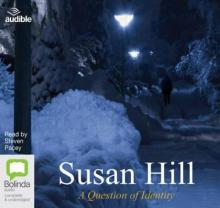 A Question of Identity
A Question of Identity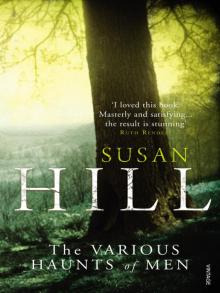 The Various Haunts of Men
The Various Haunts of Men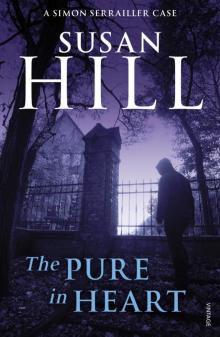 The Pure in Heart
The Pure in Heart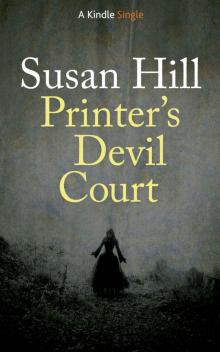 Printer's Devil Court
Printer's Devil Court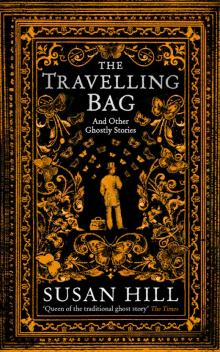 The Travelling Bag
The Travelling Bag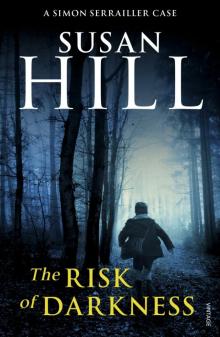 The Risk of Darkness
The Risk of Darkness A Kind Man
A Kind Man Black Sheep
Black Sheep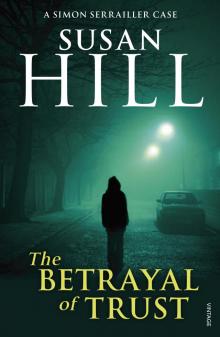 The Betrayal of Trust
The Betrayal of Trust The Service of Clouds
The Service of Clouds Betrayal of Trust
Betrayal of Trust The Small Hand
The Small Hand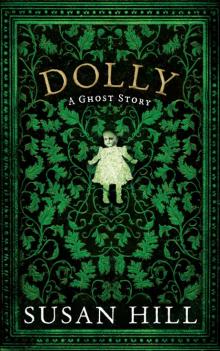 Dolly
Dolly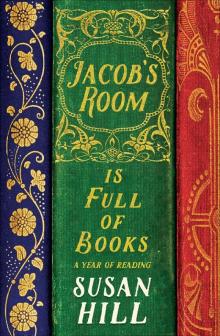 Jacob's Room Is Full of Books: A Year of Reading
Jacob's Room Is Full of Books: A Year of Reading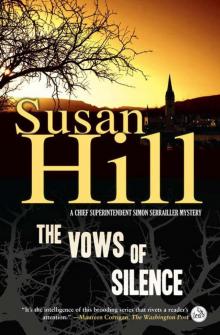 The Vows of Silence
The Vows of Silence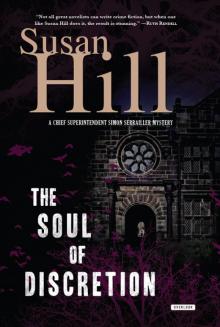 The Soul of Discretion
The Soul of Discretion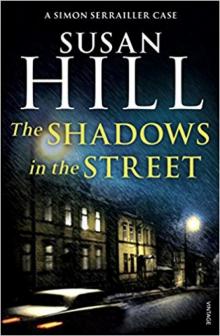 The Shadows in the Street
The Shadows in the Street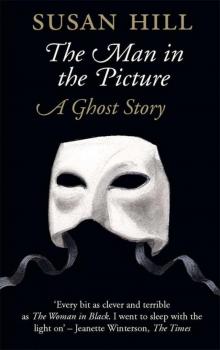 The Man in the Picture
The Man in the Picture Air and Angels
Air and Angels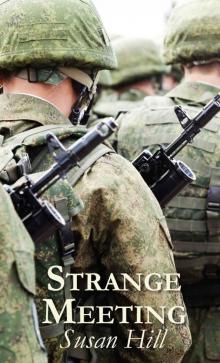 Strange Meeting
Strange Meeting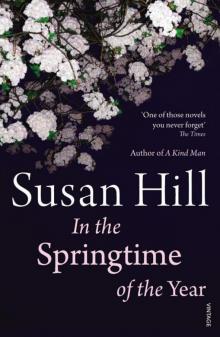 In the Springtime of the Year
In the Springtime of the Year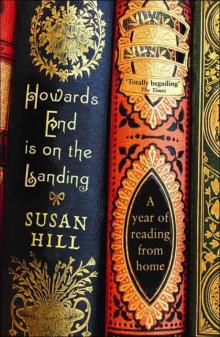 Howards End Is on the Landing: A Year of Reading From Home
Howards End Is on the Landing: A Year of Reading From Home From the Heart
From the Heart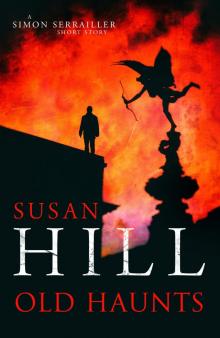 Old Haunts
Old Haunts The Mist in the Mirror
The Mist in the Mirror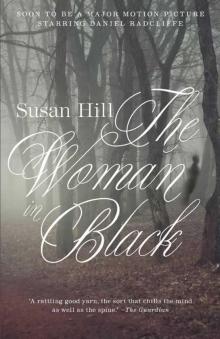 The Woman in Black: A Ghost Story
The Woman in Black: A Ghost Story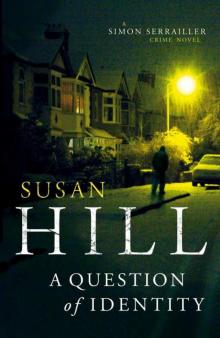 A Question of Identity (Simon Serrailler 7)
A Question of Identity (Simon Serrailler 7)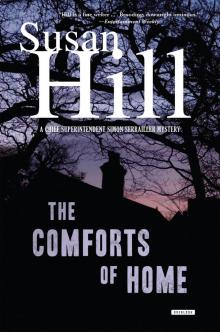 The Comforts of Home
The Comforts of Home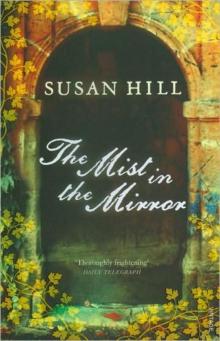 Mist in the Mirror
Mist in the Mirror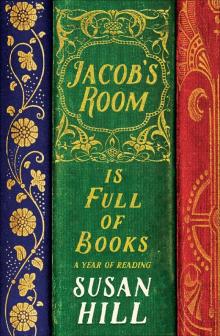 Jacob's Room is Full of Books
Jacob's Room is Full of Books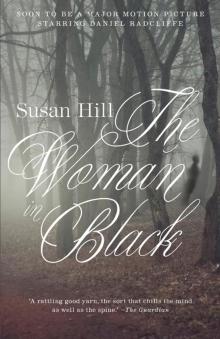 The Woman in Black
The Woman in Black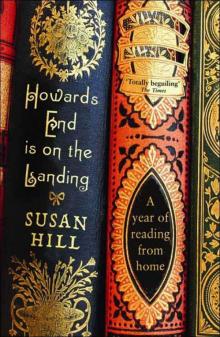 Howards End is on the Landing
Howards End is on the Landing